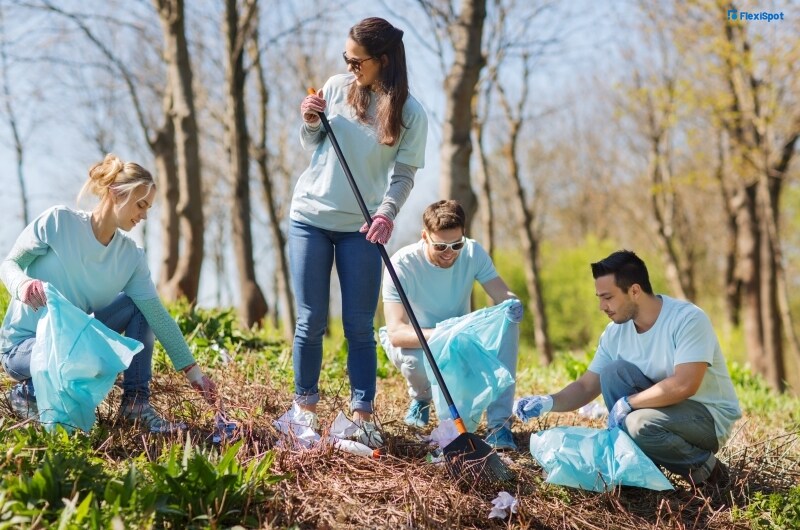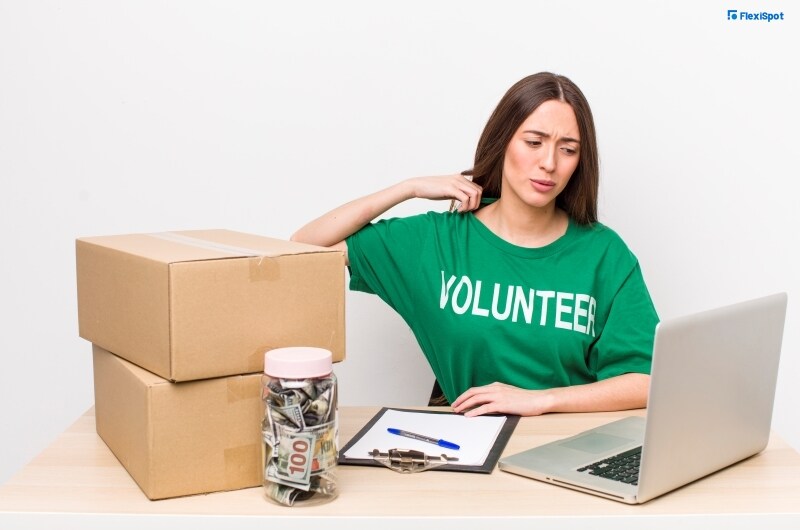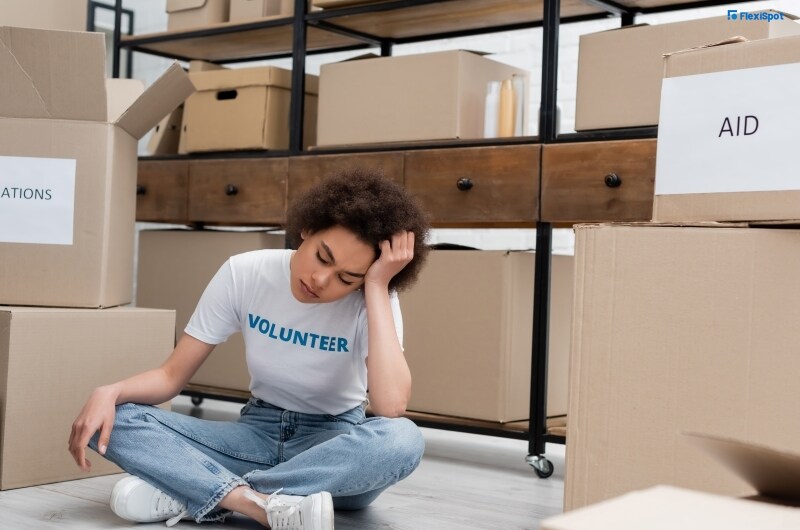If you are a fan of the popular 90s sitcom Friends, you sure did not miss the episode, “The One Where Phoebe Hates PBS.” The main plot of the episode was Phoebe and Joey butting heads on whether or not a selfless good deed exists. Joey insisted that there is no selfless deed because people feel good after doing something good. Phoebe, as altruistic as she is, believes in the “selfless” nature of people. While we love both of these characters, we can’t help siding with Joey on this one. The Dalai Lama even says that the antidote to anxiety is altruism.
We believe people feel good about themselves when they help. Even if their intention might be completely selfless, they still get something out of doing good to other people.
So if you’ve been feeling empty for quite a while and are hungry to do the world better, you might want to consider volunteering. Yes, you will give so much of your time, efforts, and skills for no charge at all. But contrary to what other people believe, and what we’ve been trying to point out from the start is that you also get a lot from volunteering.
You’d have a new experience where you can learn new things, add to your resume, and expand your network. There are lots of benefits but take note that volunteering has some opportunity costs. There are many things to consider before pushing the green button to volunteer.

So what benefits will you gain from volunteering?
First off, you’ll find new friends with similar interests, values, and principles or build your own community of volunteers. You’ll have this whole network of new friends who come from different industries but share a common desire to help. You’ll get to know people from different walks of life and learn from your interaction with them. You’ll be rewarded with the feeling of belonging to a group and having a purpose in life.
Of course, you also get to impact the world positively. People coming from vulnerable groups and minorities often live with a heavy burden on their hearts, and you come from a privileged group and would be able to offer a positive difference to them. You can also help address issues such as animal cruelty and climate change.
While volunteering, you will open yourself up to many opportunities and discover what career path you want to take. Without the pressure of earning money or getting promoted, you’d have a clearer headspace on what you want to do and what you do best. If you already have something in mind that you want to do, you could immerse yourself in the real experience by volunteering to assist someone in an industry that interests you.

If you haven’t a full-time job yet, then you can spend time volunteering to get more experience. It can spice up your resume and help you gain new skills that are required from the job availability that you are applying for.
And as mentioned above, volunteering can help you take care of your mental health, and yes. Physical health too. Stress is reduced and you’re in a much lighter and better mood when you volunteer. You’ll get better sleep and there are lower chances that you’ll develop heart disease.
If you’ve been soul-searching and finding a purpose in what you are doing, volunteering is a good start. When you see where your contributions went, you’ll be so happy and you might want to stay in that moment forever. When you find your calling, you become less anxious and depressed.
Volunteering can also help you become more confident. You get to interact with other people, explore a whole new world and experience an environment that is safe and welcoming. You will most likely be proud of the volunteer work that you do and consequently, become much more confident in your skills that even go beyond the volunteer opportunity you are applying for. You’ll also get exposed to different industries that might make you decide to switch gears for your career.

But then, what are the negative impacts of volunteerism?
Don’t expect to get paid when you start to volunteer. So you must be prepared to go unpaid for weeks and months when you start to volunteer and if you can’t afford to do so, then it’s best if you look for a paid position to occupy your time with instead. Just do the research so you won’t be surprised that you’ve been doing a lot of unpaid work. You might even need to shell out the money yourself. If for instance, you decide to volunteer overseas, you will have to shoulder your plane tickets and accommodations. Expect also that some may require administrative fees. If you’re traveling, you can look for a volunteer opportunity abroad that pays.
And since you’ll be working with other people, it’s very likely that you’ll clash with someone of a different personality. It’s hard to ask for accountability when you are all volunteers and not getting paid, which might stir up conflict in terms of commitment and dedication to volunteer.
Time will also be taken from you, of course. If you are doing it during your free days from work, then you will have less time to relax. You might have low energy because you are spreading yourself too thinly.

If you are volunteering somewhere far away, you might feel homesick and not feel comforted by anyone since you are so far from home. And when you volunteer, you’ll quickly discover the lack of structure in volunteer organizations. It’s main point is to not make money so you’d be working a lot with people who have many responsibilities aside from the volunteer work.
If you want to make good use of your time, meaning to work efficiently so you could pay your bills and have ample time and energy for volunteering, consider building an ergonomic workspace at home. It will help you protect your health, minimize body pains throughout the day, boost your efficiency, and improve productivity—all while giving you a comfortable work experience. We highly suggest checking our trusted brand FlexiSpot for your ergonomic needs.
Happy volunteering!